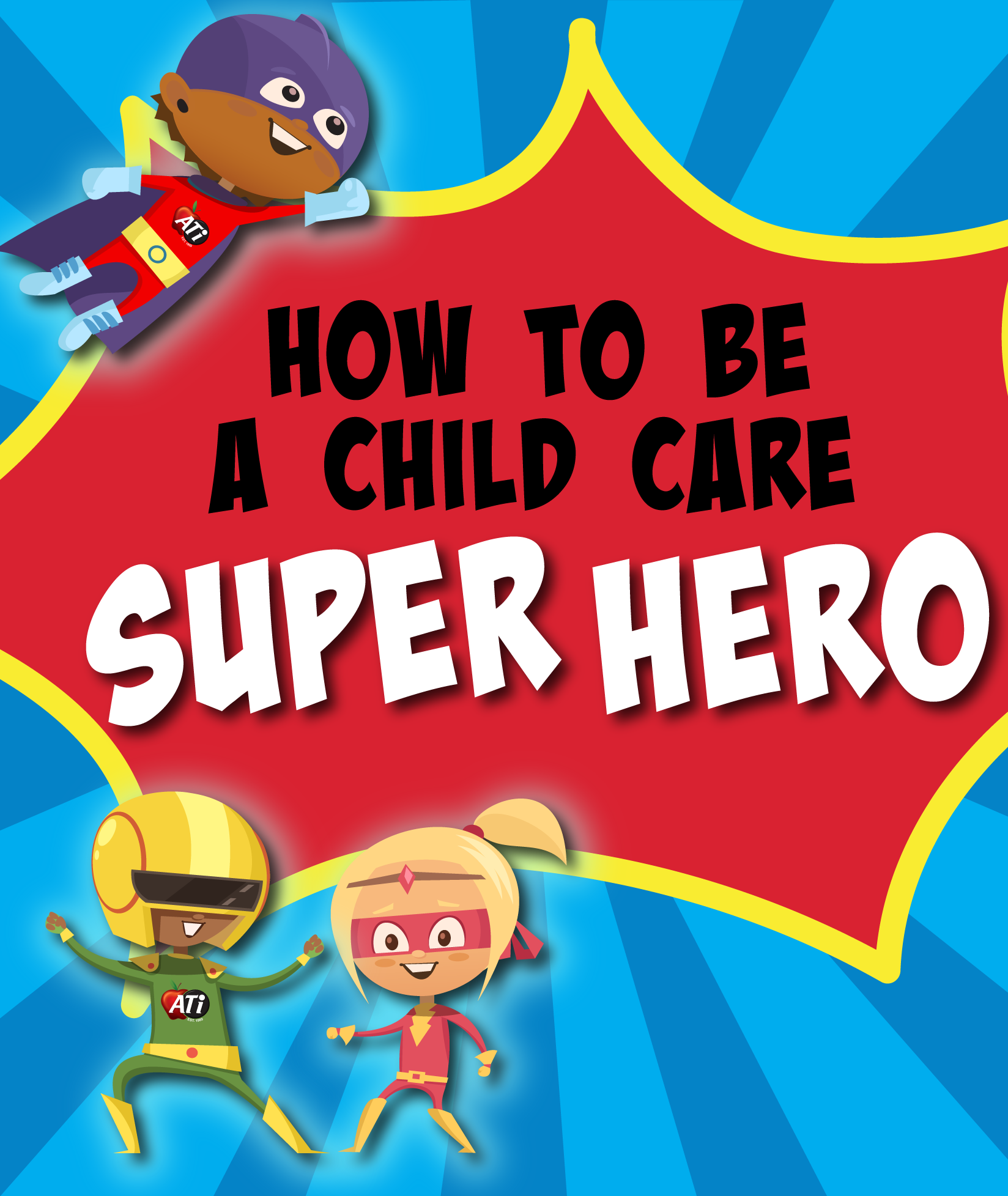
How to Become a Childcare Trainer: Step-by-Step Guide
Are you passionate about shaping the future by nurturing young minds? If you’ve ever dreamed of making a real difference in the lives of children, becoming a childcare trainer might be your perfect path.
Imagine waking up each day knowing that your work helps build a brighter tomorrow. As a childcare trainer, you’ll not only share your knowledge with eager learners but also inspire the next generation of educators to provide the best care possible.
We’ll uncover the steps you need to take to turn your passion into a fulfilling career. Ready to transform your love for children into a rewarding profession? Let’s dive in and explore how you can become a childcare training expert.

Understanding The Role
Understanding the role of childcare training involves learning essential skills. Develop a nurturing environment for children’s growth. Gain knowledge in child development, safety, and communication.
Understanding the role of a childcare trainer is crucial if you’re considering a career in this rewarding field. A childcare trainer not only imparts essential skills to childcare workers but also shapes the future of childcare practices. The impact you have can ripple through generations, making it a deeply fulfilling profession.
What Does A Childcare Trainer Do?
A childcare trainer educates and mentors aspiring childcare workers. They develop training programs that cover everything from child development to safety protocols. Trainers also assess the trainees’ progress to ensure they meet industry standards. Your role involves a lot of interaction. You’ll work closely with trainees to help them understand complex concepts. Patience and strong communication skills are your best allies.
Skills And Qualifications Needed
To become a successful childcare trainer, you need a strong foundation in early childhood education. Many trainers hold degrees or certifications in this field. Experience working directly with children is equally valuable. Do you possess leadership skills? As a trainer, you guide and inspire your trainees. Your ability to lead will greatly influence their learning experience.
The Importance Of Continuous Learning
The childcare field is always evolving. New educational methods and technologies emerge regularly. Staying updated on these trends is crucial for effective training. Imagine attending a workshop and learning a new technique that changes how you approach a topic. Such experiences can transform your training sessions, keeping them fresh and relevant.
Why Passion Matters
Passion for childcare and education is key. It fuels your dedication and perseverance. Without it, the challenges of the job might overwhelm you. Reflect on why you want to be a childcare trainer. Your reasons will drive you to excel and make a meaningful impact. Passionate trainers inspire others, creating a positive cycle of influence. Does this career path resonate with you? If so, take the next step with confidence, knowing the profound difference you can make in the world of childcare.
Educational Requirements
Embarking on a journey to become a childcare trainer is both rewarding and challenging. To guide and educate future childcare providers effectively, you need a solid educational foundation. This section will delve into the necessary degrees and relevant certifications that can set you on the path to success in this fulfilling career.
Necessary Degrees
To start your career as a childcare trainer, obtaining a degree in Early Childhood Education is often essential. This degree provides you with the foundational knowledge of child development and educational strategies. Many institutions offer specializations in areas like curriculum development and child psychology.
While a bachelor’s degree is often the minimum requirement, pursuing a master’s degree can enhance your expertise. A master’s degree can open doors to advanced positions and increase your credibility as a trainer. If you aim to influence teaching methods and policies, consider furthering your education.
Imagine teaching a class where you can confidently answer complex questions about child behavior. Wouldn’t it be satisfying to know your degree equipped you with the necessary skills? Investing in your education pays off in your ability to impact future childcare professionals.
Relevant Certifications
In addition to a degree, obtaining certifications can significantly boost your career prospects. Certifications like the Child Development Associate (CDA) credential demonstrate your commitment to high standards in childcare training. This credential requires hands-on experience and a comprehensive understanding of childcare practices.
Consider enrolling in CPR and First Aid courses. These certifications are often required in childcare settings and show your readiness to handle emergencies. Being prepared for unexpected situations can make a difference in your role as a trainer.
Continuous learning through workshops and seminars is also crucial. Stay updated with the latest childcare trends and techniques. How can you expect others to learn from you if you’re not committed to learning yourself?
Do you see yourself leading workshops on innovative childcare strategies? Relevant certifications can empower you to be a trusted source of knowledge and expertise in the childcare community.
Gaining Experience
Embarking on a journey to become a childcare trainer involves more than just acquiring theoretical knowledge. Gaining hands-on experience is crucial to understanding the diverse needs of children and honing skills that will set you apart in the field. Through practical involvement, you can build a solid foundation and become a trusted expert in childcare training. Let’s dive into some effective ways to gain this invaluable experience.
Hands-on Childcare Work
Working directly with children in various settings will deepen your understanding of their developmental stages. Engage with them in daycares, schools, or community centers. Each interaction teaches you something new.
Consider part-time jobs or babysitting gigs. These opportunities allow you to observe and adapt to different childcare environments. You’ll learn to handle unexpected situations and refine your approach.
Remember my first day at a daycare? A toddler threw a tantrum, but instead of panicking, I calmly engaged him with a story. That experience taught me the power of patience and creativity.
Internships And Volunteering
Internships provide structured learning experiences, often under the guidance of seasoned professionals. Look for programs at educational institutions or childcare organizations. They can offer insights into effective training methods.
Volunteering adds a layer of community service, enhancing your interpersonal skills. Participate in activities like organizing educational workshops or assisting in after-school programs. You’ll gain exposure to diverse childcare practices.
Think about volunteering at a local community center. You not only contribute to society but also learn firsthand about managing group dynamics and fostering a nurturing environment. How can you leverage these experiences to shape your childcare training approach?
As you gain experience through hands-on work and volunteering, reflect on what resonates with you. Each moment spent with children is a step closer to becoming a proficient childcare trainer. How will you use these experiences to impact future generations?

Developing Skills
Becoming a childcare trainer requires a blend of essential skills. These skills help trainers create a nurturing environment for children. Effective communication, leadership, and curriculum development play vital roles. Each skill contributes to building a strong foundation for childcare education.
Communication Skills
Communication is key in childcare training. Trainers must convey information clearly to children and parents. Listening is equally important. Understanding concerns and feedback fosters a supportive atmosphere. Strong communication builds trust. This ensures effective learning and a positive experience for all.
Leadership Abilities
Leadership in childcare training involves guiding both children and staff. Trainers set the tone for learning environments. They must inspire and motivate others. Good leaders create a sense of community. They encourage teamwork and shared goals. Leadership skills help manage challenges with confidence and calm.
Curriculum Development
Designing a curriculum is crucial in childcare education. It involves planning activities and lessons that engage children. A well-structured curriculum promotes learning and growth. Trainers must adapt materials to suit different age groups. Creativity in curriculum development keeps children interested and eager to learn.
Building A Professional Network
Building a professional network is crucial in childcare training. It connects you with industry peers and opens doors to opportunities. Networking can lead to sharing best practices and staying informed about new trends. A strong network enhances your career growth and professional development.
Joining Associations
Join associations related to childcare training. They offer a platform to connect with other professionals. Membership often provides access to resources and events. These associations keep you updated on industry standards. Participating actively can increase your visibility and credibility.
Attending Workshops And Conferences
Workshops and conferences are great networking venues. They offer a chance to learn new skills and meet experts. Engaging with speakers and attendees can expand your network. These events often provide insights into the latest childcare practices. Attending regularly helps you stay current and connected.
Finding Job Opportunities
Finding job opportunities in childcare training can be both exciting and challenging. With the right approach, you can land a rewarding position that suits your skills and passion. Here’s how you can navigate through job portals, listings, and networking to find the perfect opportunity.
Job Portals And Listings
Job portals are a treasure trove of opportunities, especially for childcare training roles. Websites like Indeed, Glassdoor, and LinkedIn are great starting points. These platforms allow you to filter searches by location, salary, and job type, making it easier to find positions that match your qualifications.
Set up job alerts to stay updated on new listings. This way, you won’t miss out on opportunities as they arise. Tailor your resume for each application, highlighting relevant skills and experiences that make you stand out.
Have you ever wondered how some people land jobs before they’re even advertised? They often have insider connections or timely information from networking. Let’s explore how you can leverage networking for your job search.
Networking For Opportunities
Networking is more than just attending events and handing out business cards. It’s about building genuine relationships. Engage with professionals in the childcare industry through social media platforms like Facebook groups or LinkedIn.
Share your insights and experiences; people notice those who contribute meaningfully to discussions. Reach out to mentors or peers in the industry for advice. You might be surprised at how willing people are to help.
Consider joining local childcare associations or groups. These communities often have exclusive job postings and provide a space to learn from others’ experiences. What’s stopping you from reaching out today?
Advancing Your Career
Explore the path to becoming a childcare trainer by gaining relevant certifications and practical experience. Build skills in child development, safety, and effective communication. Networking with professionals in the field can open doors to opportunities in childcare training.
Advancing your career in childcare training opens many opportunities. It allows you to grow professionally and personally. Learning new skills can increase your job satisfaction. It also helps you provide better care for children.
Continuing Education
Continuing education is essential for career growth. Childcare is always evolving. New techniques and methods are developed regularly. Staying updated is crucial. Attend workshops and seminars. They offer hands-on learning experiences. Online courses are also an option. They allow flexibility with your schedule. These educational opportunities enhance your knowledge. They make you more skilled in your role.
Specializing In Niche Areas
Specializing in niche areas can set you apart. Focus on a specific age group or learning style. Early childhood development is one popular niche. Another is working with children with special needs. Each requires unique skills and understanding. It increases your expertise and marketability. Specialized knowledge can lead to new job roles. It can also increase your salary potential.
Overcoming Challenges
Starting a career in childcare training is rewarding. But it comes with challenges. Balancing work and personal life is key. Handling tough situations is part of the job. Here’s how to manage these challenges effectively.
Managing Work-life Balance
Juggling work and home life can be tough. Set clear boundaries to keep them separate. Create a schedule that includes breaks. Prioritize tasks based on importance. Remember, taking care of yourself is vital. It keeps you energetic and focused. Use tools like calendars to stay organized. They help manage your time effectively.
Handling Difficult Situations
Childcare trainers often face challenging situations. Stay calm and composed during conflicts. Listening is crucial in these moments. Understand the concerns of others. Respond with empathy and patience. Develop problem-solving skills to find solutions. Practice these skills regularly to improve. Training workshops can help in gaining new strategies. They provide valuable insights and techniques.

Frequently Asked Questions
What Qualifications Are Needed For Childcare Training?
Childcare training requires a high school diploma and certification. Many programs also need CPR and first aid training. Advanced courses may demand higher qualifications. Check specific course requirements before enrolling.
How Long Does Childcare Training Take?
Childcare training duration varies by course and level. Basic certifications can take a few weeks. More comprehensive programs might last several months. Always check individual program timelines for accuracy.
What Skills Are Essential For Childcare Providers?
Childcare providers need patience, communication, and problem-solving skills. Understanding child development is crucial. Skills in planning and organizing activities are also important. Continuous learning enhances these abilities.
Can Childcare Training Be Done Online?
Yes, many institutions offer online childcare training courses. These programs provide flexibility and convenience. Ensure the course is accredited and meets industry standards. Online platforms often offer interactive and comprehensive training modules.
Conclusion
Becoming a childcare trainer is a rewarding journey. It involves dedication and passion. Start by gaining experience in childcare settings. Enroll in relevant courses to enhance your skills. Certification can boost your credibility and opportunities. Networking with professionals helps broaden your knowledge.
Stay updated with the latest childcare techniques. Practice patience and effective communication. These are essential skills for any trainer. Remember, every step you take shapes your future. Be patient and persistent. You can make a difference in children’s lives. Your commitment will lead to success in this fulfilling career.




